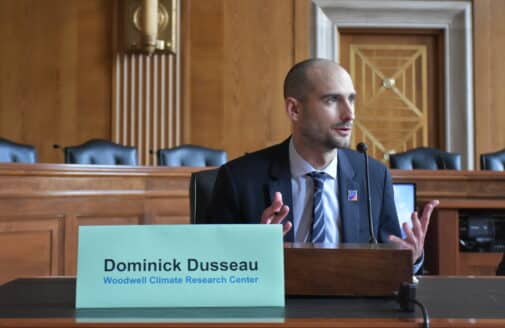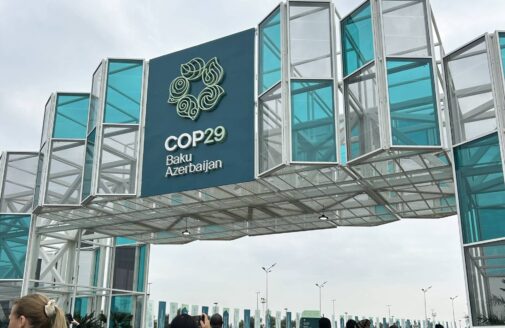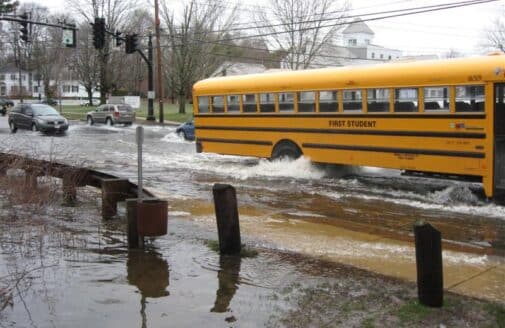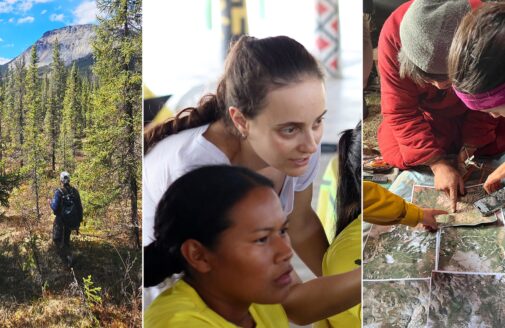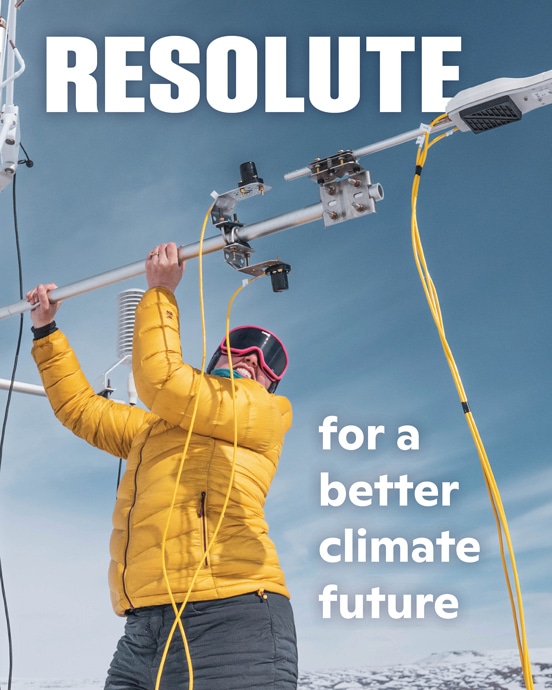What to know about this June’s climate meetings
The work on international climate policy happens year-round
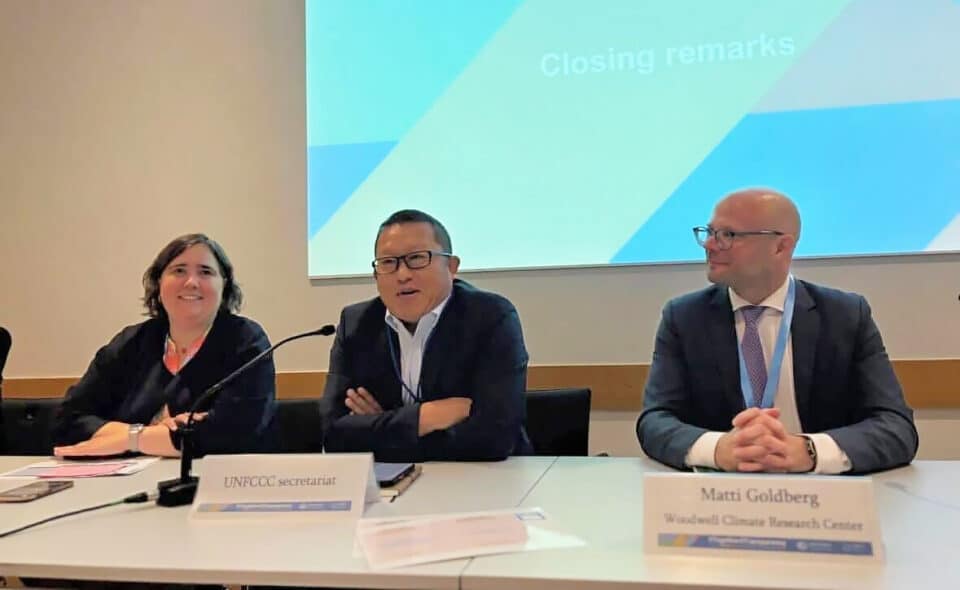
Matti Goldberg sits on a panel launching Woodwell Climate’s collaboration with UN Climate Change.
photo courtesy of Matti Goldberg
While the annual climate Conference of Parties (COP) each fall is the largest and most visible event of the global climate effort, international climate action happens all year long. Each June, United Nations Framework Convention on Climate Change (UNFCCC) holds a preparatory conference in Bonn, Germany. These summer climate meetings, often referred to in shorthand as “Bonn,” bring together up to 7000 delegates for the nitty gritty work of international cooperation.
At Bonn, government delegations negotiate the full range of issues surrounding global climate collaboration, scientific organizations present their latest findings, civil society groups advocate for climate action, and diverse coalitions showcase their efforts. The June meetings lay the groundwork for decision-making and collaboration at the upcoming COP, and often give a clear indication of the challenges to come in the fall negotiations. This year, from June 16 to 26, conversations at Bonn spanned topics including the development of indicators for global resilience, clarifying how the world should pursue the global energy and forestry related targets agreed on at COP28, mobilizing climate finance, increasing countries’ ambition for emissions reduction, and ensuring a just global transition away from fossil fuels.
This year’s summer meetings proved a tough one for governments attempting to move forward on nearly every issue, though delegates did manage to achieve clarity on the decision-making agenda for the upcoming COP30, to be held in Belém, Brazil in November. In the science realm, the UNFCCC launched a systematic mapping of what research needs are currently being met by the scientific community and where there are still gaps in actionable information.
Beyond the intergovernmental negotiations the conference included a wide range of events and activities by observer organizations. A Woodwell Climate delegation was in attendance again this year, taking part in some of the key activities of the conference. Here are 3 highlights from The Center’s engagement at this year’s June climate meetings.
- Reporting and Transparency: One of the linchpins of the Paris Agreement is its extensive reporting regime. Every two years, each country party to the Paris Agreement is required to submit a report outlining their national climate actions. These reports have to be reviewed by technical experts to ensure accountability to stated goals. On the first day of the June meetings, Woodwell Climate officially launched a partnership with UN Climate Change to train reviewing experts on adaptation action and reporting. The collaboration will encompass virtual and in-person workshops, as well as intensive academy-style sessions to provide practitioners with the skills and knowledge needed to uphold transparency.
- The 17th Annual Research Dialogue: This is the biggest event for scientists at the UNFCCC meetings. It is an opportunity for science organizations and experts to present their latest findings and learn from governments about knowledge gaps and needs. Woodwell’s Director of Government Relations – International, Dr. Matti Goldberg, presented research from a recent study led by Woodwell Climate and the Environmental Defense Fund that showed how climate-driven emissions, like those from increased wildfire and thawing permafrost, threaten the viability of the Paris Agreement.
- Side Events: Every year, swirling around the main agenda of the June meetings, is a host of side events that tackle important topics. This year, Woodwell Climate Assistant Scientist Dr. Ludmila Rattis and Fundação Dom Cabral organized an official side event to discuss the creation of an index for measuring the sustainability of agriculture based on soil health, the presence of forests, and diverse crop systems.
On top of substantive agenda items, participants tried to grapple with the logistical issues arising around the conference in Belém, with affordability and accessibility being particularly acute concerns for non-governmental organizations and Global South participants. Despite the questions remaining on this front, the outcomes from this June’s climate meetings have built the foundations for a pivotal COP30 agenda—at a time when ambitious climate action couldn’t be more important.





